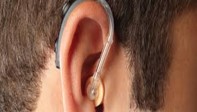TIPS FOR TEACHERS
Teachers are at special risk for developing hoarseness simply be cause the job requires heavy voice use five plus days a week, with little time in between to allow the voice to recover. It has been observed that half of all teachers have a voice problem at some point in their careers.
WHAT TO DO?
❖ Take care to be well-hydrated. Begin your day with a full glass of water.

❖ Warm up your voice before you begin speaking and certainly before you enter the classroom. Use efficient speaking techniques as soon as you begin talking. This means establishing a routine for when your feet first hit the floor in the morning. Please see our routine at the bottom of this article.
❖ Use personal or room amplification to minimize voice use in classroom or in rehearsal.

❖ When you can, use sound makers (whistles, hand claps) to gain students’ attention, rather than a loud voice.

❖ Use printed signs or hand signals for messages that you use often.
❖ Minimize using your voice to teach the music. Have the pianist or section leaders demonstrate the part.
❖ Provide recordings for your choir members to learn the music.

❖ Avoid talking at the end of your breath. Don’t hold your breath before or between words.
❖ Use deep breathing avoiding shallow breaths before you talk.
❖ Incorporate vocal pacing by taking breaks from talking, both long and short throughout your day whether it is a weekend, vacation or typical work day. Not talking for even 5 minutes will make a difference.
❖ Avoid speaking at long lectures. Get creative with other ways to teach.
❖ If you are ill, cancel your engagements. If your voice is tired, stop speaking! Wear a button that says “I’m on vocal rest.”

Vocal Rest Button
❖ Decrease the amount of time you spend on the phone. Use text messaging or email. By all means, avoid loud conversations on the phone.
❖ Improve your classroom acoustics by adding acoustic panels to the ceiling and walls and carpeting to the floors. These materials help decrease the reverberation or echo of sound in the room. Minimize the noise from fans, lights, overhead projectors, and sound coming from other classes. For more specific tips, visit asa.aip.org for the Acoustical Society of America’s Classroom Acoustics booklet.
Lombard effect: The Lombard effect will cause one to increase their volume due to increased noise levels in the room. Voices tend to produce a more pressed phonation. For singers, pitch accuracy can become unstable and retention of pitch inaccurate. Do you best to avoid talking over noise whenever possible. Turn off the fan, buzzing lights, computers, etc..
❖ Wear an earplug in at least one ear. It can help your voice in a noisy situations, so that you avoid speaking too loudly. Molded Ear Plugs



❖ Morning Vocal Routine:
- Light hum on a descending slide starting at about mid-register easily done as you are dressing for your day.
- Lip trill on an ascending penta-scale from low register to upper register. Then, graduate to full scales ascending and descending.
- Keep the diaphragmatic breathing you experienced all night with slow hisses or “sh-sh-sh”.
- Get the articulators going as you’re making your coffee or hot tea with explosive consonants: “ticky-ticky-ticky-too” or “chugga-chugga-choo-choo”.
- Move to phonation in the head voice with those great bird sounds of the crow and the owl: “caw-caw” “hoo-hoo”.
- Speaking with your established head voice and on the air – mix up some tongue twisters:
Sally sells sea shells down by the sea shore.
What a wonderful world when we whistle as we walk.
7. From there, you can move to your chest voice with a “ho-ho-ho-ho” and from there to singing in your different registers.
References:
Duke Voice Care Center. Vocal health information. Retrieved from http://dukevoicecare.org.
Daugherty, J. (2012). Vocal health handout. University of Kansas. Lawrence, KS.
Parillas, D. (n.d.). Vocal hygiene – part 2: hydrate! hydrate! hydrate! why vocal hydration is important to singing. Vocal Brilliance. Retrieved from: http://vocalbrilliance.com/blog/vocal-hygiene-part-2-hydrate-hydrate-hydrate-why-hydration-is-important-to-singing
Images retrieved from:
3D anatomical tutorial on the vocal and vestibular folds: Retrieved from : http://youtu.be/jqTKSorDRJo
www.3-Dyoga.com
www.google.images.com
READ MORE:
Regarding Lombard Effect: For singers, auditory feedback is improved and vocal efficiency enhanced indicated that when a choir utilized a spread spacing arrangement, 95% of the singers experienced a positive difference than when the choir stood close together. Daugherty, J. (1999, 2000).


Leave a Reply
You must be logged in to post a comment.